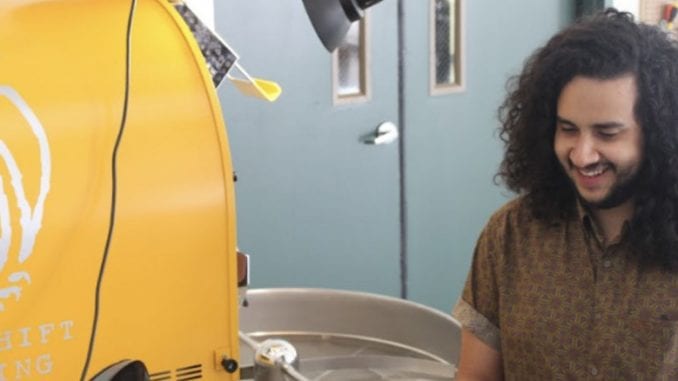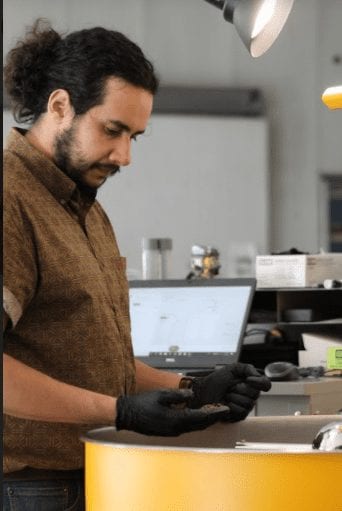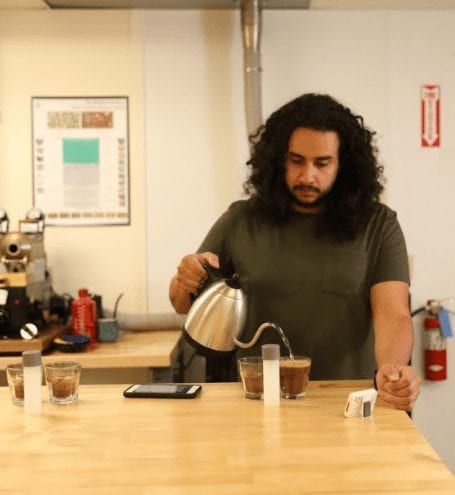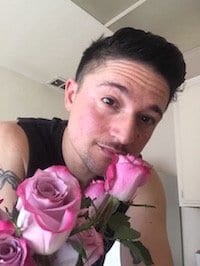
The Boston-based roaster reveals his latest offering for the subscription service the Matchbook Coffee Project.
BY MARK VAN STREEFKERK
BARISTA MAGAZINE ONLINE
Cover photo by Kristina Jackson
When Rob Rodriguez was a barista, his favorite task was the early morning dial-in—adjusting the grind setting and dose was a process where Rob was alone with his music, figuring out a puzzle. Rob started at Boston’s Barismo in 2013, then worked at Redeye Coffee Roasters before a 3.5-year stint at George Howell Coffee, where he was a production supervisor before eventually working his way into roasting.
Rob now roasts at Night Shift Coffee. “I think roasting was definitely something I didn’t ever expect to be doing,” Rob admits. “A lot of us who are doing this, we’re not coming from science backgrounds or anything like that. The sheer data of it all is so transfixing. At a certain point, you can’t help but keep asking questions, keep digging deeper and deeper every second you’re doing it. That sort of snatched me right up.”

Matchbook Coffee Project, a coffee subscription company that compares itself to a record label, is featuring coffee selected and roasted by Rob for this month’s release. Matchbook selects different roasters every month and purchases green coffee for them, giving them creative control of roasting and packaging. Rob’s offering, Weird Fears, is a Tamiru Genale natural process coffee from the Guji region of Ethiopia. Part of Rob’s budget for Weird Fears will be donated to Hope for the Day, a suicide prevention and mental health awareness nonprofit. Read on to learn more about Rob’s reflections on roasting, working with Matchbook, and more.
Mark Van Streefkerk: What are some things you consider when you source coffee?
Rob Rodriguez: Just because a coffee is from a place people like doesn’t mean it’s always gonna be good, and the expectation of sourcing coffee should be to find the thing that best fits what your goal is as a business or as a roaster. (I mostly look for) what is the tastiest, most interesting natural coffee I can find.
Tell me about Weird Fears. Why did you choose this specific coffee?
Physically I don’t think I’ve ever worked with this variety of coffee, which is called Dega. It behaves pretty consistently with other coffees in the drum, save for the fact that the first crack is nearly inaudible. In trying to dial it into the roaster, I had to just kind of take a stab at where first crack was for this coffee, and then trial and error until I got the development that I was looking for. What I ended up with was something I’m really proud of. Choosing it for Matchbook was a way to celebrate that for myself. I’ve consistently had a lot of trouble being happy about making the right choice. And I think this was something that really exemplified the right choice in picking the coffee, and not because I was the only person who had that opinion.
I worked with our team at Night Shift, tasting coffees together, coming to a decision about picking it out, which is the thing I want to see: that community level of connectedness to land on something that everyone can truly be happy with. Being able to share that with everybody at Matchbook, I don’t think I could have picked anything else.
What was it like working with Matchbook? Did they reach out to you?
Yeah. They reached out to me, which was really awesome. I’ve been buying coffees from them at least since last year. A friend of mine did it, Mandy (Spirito). I bought their box and I was like, “Holy sh*t, this is so cool!” There’s this weird little card about my friend and they put a cassette tape in the box with a bunch of different music in there. It was just really cool. It felt so personal, even though I know they made that for so many other people. It felt like somebody made that for me.

Matchbook said they’re a company that likes to operate as a record label, so my question for you is, did you get to make a mixtape to put in the boxes, too?
That’s an excellent question, and I will say, “Maybe.”
You got to design the packaging, right?
Yeah. Whenever they ask somebody to do this, it’s really entirely up to the roaster how it comes out, including the label. They said, “You can really do whatever you want. If you know somebody that does graphic design, or that can take a photo of you that you want to use …” And I’m thinking to myself, “I can do all of those things.” I used to do that for work before I got into coffee.
I took some old drawings I had put on the back burner forever ago, and thankfully weren’t overcooked by the time I got back to them. In a way it re-centered my focus on who I am, where I came from, and ultimately what I’m about. I’m extremely thankful that they gave me this opportunity. It’s something I’ve always wanted to do, but (I) didn’t think it was going to impact me in the way that it did, and make me feel the way that I do about myself.

ABOUT THE AUTHOR
Mark Van Streefkerk is Barista Magazine’s social media content developer and a frequent contributor. He is also a freelance writer, social media manager, and novelist based out of Seattle. If Mark isn’t writing, he’s probably biking to his favorite vegan restaurant. Find out more on his website.
